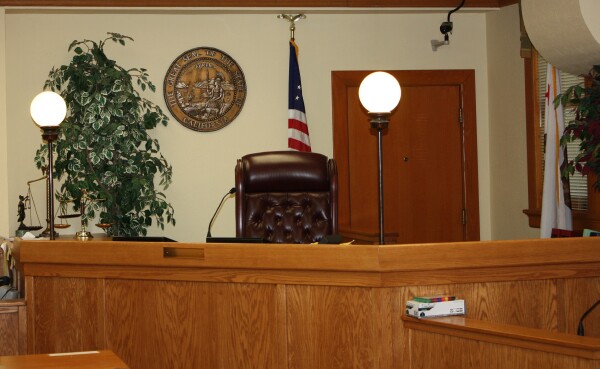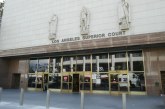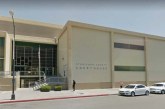
Mr. Romero may well be a gang member and may well have committed this rather heinous crime that has left his victim with permanent injuries and scars. However, watching the gang expert testify yesterday was revealing, in a lot of ways, about what is wrong in general about expert testimony.
Expert witnesses are crucial to cases such as these, because they are allowed to give expert opinion about things like gangs. But often these experts are self-appointed, and the basis for declaration of expertise is often rather subjective. Moreover, there is at times a lack of safeguards regarding the information that they give.
Officer Michael Duggins has been an Officer with the West Sacramento Police Department for over five years, and he joined the four-person Community Response Team in the beginning of 2008. The Community Response Team, among other things, investigates vice, prostitution and gang incidents. They are not dispatched like an ordinary patrol officer, but rather deployed in a more specialized manner.
Officer Duggins stated, in establishing his qualifications as an expert, that he has 150 hours of formal training in the area of criminal street gangs since 2002. This is actually a fairly high number in terms of amount of training for experts. It is their equivalent of just over four four-unit courses.
He has received overall formal training that has covered Nortenos and Surenos, the goals of these gangs, their rivalries, the criminal activities most commonly engaged in by them, etc.
Officer Duggins also talked about contacting gang members on a daily basis, speaking to them about their tattoos and what they mean, about what their gangs are up to. He noted that in-custody gang members openly discuss their gangs because there is no fear of charges and prosecution at that time.
He spoke about the West Sacramento gang scene, where he says he encounters gang members almost daily. The mostly-Hispanic Nortenos gang is the most prevalent. However, he said he does encounter some Surenos from time to time. There is a pretty large Asian gang scene as well, but not much white or black gang representation.
He claims he has contacted about 50 in West Sacramento who openly stated they are Nortenos.
While most of the time cases in West Sacramento deal with the alleged Broderick Boys Gang, this one deals with a Citrus Heights/ North Highlands sect known as the Red Nose Pits.
Under cross-examination from Conflict Council Robert Spangler, Officer Duggins was asked about those 150 hours of gang training, and apparently some of that training included a problem-oriented Policing Conference that was put on by a group of citizens and social workers.
When asked if the training was based on any studies or research and where their figures were obtained, Officer Duggins responded that he did not know where those figures were obtained.
He also acknowledged in the voir dire (which in this case is a preliminary examination of an expert witness to determine his qualifications and suitability to serve as an expert) that he had limited experience with the Red Nose Pits. Prior to the beating, he acknowledged he had never spoken to any Red Nose Pits gang member about the purpose of their gang or being in their gang. He knew that some, including co-defendent Mason Delgado, had moved from the Citrus Heights/ North Highlands area to West Sacramento. But he never really had spoken to or had contact with any, prior to this case.
After Officer Duggins mentioned that he has never spoken to the Red Nose Pits about their core principles, defense attorney Spangler objected to his being an expert on the Red Nose Pits in particular.
Judge Mock, however, responded, “I would find that he is an expert in the area of criminal street gangs and is able to give opinion testimony on the Norteno criminal street gang in general, and the Red Nose Pits in particular.”
A good portion of the basis for establishment in the gang has to do with a number of photos that were obtained from a camera and thumb drive from Mr. Delgado’s residence following the beating incident.
Officer Duggins argues that the photos show a progression in the photos, where Mr. Delgado is almost acting as an ambassador from the Red Nose Pits to the West Sacramento Nortenos, upon his move from Citrus Heights to West Sacramento.
At first, Mr. Delgado is seen with his Red Nose Pits associates from Citrus Heights, but gradually more and more with gang members from West Sacramento. The most recent photos show him exclusively with West Sacramento alleged gang members. The officer argued this shows Delgado’s allegiance to West Sacramento, and belies the fact that he cannot just come into the community without forming some sort of alliance with them.
Officer Duggins stated that, in his opinion, “Mr Delgado on that day was an active participant of the Norteno criminal street gang.”
He also stated that he had never met defendant Michael Romero prior to this incident. However, based primarily on photos, Mr. Romero is an active gang member, in his opinion. In particular, he notes the booking photos from Christmas Eve 2008 where he spray painted on his jeans “XIV 4 life” in red spray paint and also showed dots on his hand indicating 1 and 4.
He explained that Nortenos use the number “14” which depicts “N” which is the 14th letter of the alphabet.
In photos he made a note of several key points – arguing that while some of the symbols and depictions are not exclusively gang or Norteno, you have to look at the totality of the circumstances.
The reliance on the photos is somewhat problematic. The gang culture has, to some extent, become part of pop culture through the popularity of Hip Hop Music. There is quite a bit of crossover between gang symbols and Hip Hop Culture in general. Even to the extent that one blindly looking through My Space or Facebook photos might conclude that many white Davis suburban teens are actually gang members. They wear colors, throw gang signs in photos, but for the most part they are emulating what they see on TV or in pop cultural references.
The DA’s Office and law enforcement have often used such photos as strong evidence of gang affiliation, whereas a more scientifically-based study might reveal a great deal of ambiguity.
Some of this arose yesterday in court when the DA Investigator Bruce Naliboff selectively read from a letter that Mr. Romero sent from jail that allegedly showed he was a gang member. At the same time, they omitted portions of the letter where Mr. Romero wrote, “Life is not about gangs or violence but about taking care of each other… we will see better days,” and in which he goes on to mention the importance of education.
The prosecution highlighted only those portions of the letter that benefited their case, but left out the context that shows a far greater amount of ambiguity, as Mr. Spangler noted in cross-examination.
Officer Duggins also made a number of statements that would cause me to question his expertise. In one picture, Officer Duggins noted the use of the Huelga Bird, the symbol of the United Farm Workers that has been co-opted by Norteno gangs, as evidence of their gang membership.
However, in explaining the symbol, he said that that they use the Huelga Bird because they are Nortenos symbolizing the fact that they are northerners. In fact, that is not at all why they used the symbol.
The Norteno gang is an offshoot of the larger prison gang, Nuestra Familia. Nuestra Familia was formed in opposition to the Mexican Mafia (Surenos). The Surenos were primarily Hispanics who came to urban areas like Los Angeles. They looked down on the more rural northerners. The northerners joined together out of protection – many of them came directly from the farm, and were farm workers or the children of farm workers.
They adopted the Huelga Bird out of an honoring of their rural agrarian roots and the roots of the UFW struggle.
While it is a small point, Officer Duggins’ apparent failure to understand the history of that symbol leads to me to begin questioning just how much of a true gang expert he is.
The defendant in this case may well be a gang member, however, I think the kind of evidence that has been brought forward needs to treated with much less certainty as it has been.
Establishing gang membership is actually hugely important for the prosecution in these cases. Jurors are much more likely to believe that a defendant who is a known gang member has perpetrated a crime. Moreover, the prosecution is allowed to bring in a lot of extraneous information about gangs in general to establish the gang case, but in so doing it helps to color the views of the jury.
If that evidence is to be allowed, perhaps there needs to be a much higher threshold for the admittance of certain evidence and the establishment of expert witnesses.
—David M. Greenwald reporting





No one can even get a BA with only 150 hours of “training.” You can’t even get an AA. How can one be considered an expert. They should have at minimum a master’s degree, and at best a PhD in the field or subject to which they are testifying.
When it comes to street education, having a degree from the school of hardknocks, is where one receives their degree and expertise…not classroom or textbooks.
From the freedictionary.com: “Expert witnesses are persons who are qualified, either by actual experience or by careful study, to form definite opinions with respect to a division of science, a branch of art, or a department of trade. The law deems persons having no such experience or training to be incapable of forming accurate opinions or drawing correct conclusions. Thus, if scientific, technical, or other specialized knowledge will assist the trier of fact to understand the evidence or to determine a fact in issue, a witness qualified as an expert by knowledge, skill, experience, training, or education, may testify in the form of an opinion or otherwise, if (1) the testimony is based upon sufficient facts or data; (2) the testimony is the product of reliable principles and methods; and (3) the witness has applied the principles and methods reliably to the facts of the case. In Kumho Tire Co. v. Carmichael, 526 U.S. 137, 149-152, 119 S.Ct. 1167, 143 L.Ed.2d 238 (1999), the U.S. Supreme Court further observed that the reliability of a scientific technique may turn on whether the technique can be and has been tested; whether it has been subjected to peer review and publication; and whether there is a high rate of error or standards controlling its operation.
Courts do not apply a rigid rule in determining whether a particular witness is qualified to testify as an expert. Instead, an expert’s qualifications are normally evaluated on a witness-by-witness basis, according to the facts and issues of each case. Several courts have stated that the true criterion in determining the qualification of expert witnesses is not whether they employ their knowledge and skill professionally or commercially, but whether the jury can receive appreciable help from them on the particular subject in issue. Many courts also require the witness to exhibit sufficient knowledge of the subject matter before his or her opinion to go to the jury.
The qualifications of an expert witness must be carefully scrutinized by courts to guard against charlatans who may give erroneous testimony without a sound foundation. Most courts will more closely scrutinize the qualifications of witnesses seeking to testify as experts if they have never been found qualified to give expert testimony on a prior occasion. However, primary reliance is not placed on the fact that it may be the expert’s first time on the witness stand. Conversely, the fact that a witness has been previously qualified to give expert testimony on the subject matter in question is typically irrelevant to his or her qualifications for giving such testimony in a subsequent case.”
There are all sorts of articles on the internet and elsewhere that discuss the problems with expert testimony. It has its place in trials, but as with everything else, is imperfect.
The school of hard knocks does not make one an medical expert, or a forensic expert or a psychological expert, etc, etc, etc…… A gang expert should be required to have similar credentials, having studied the issue through a prism of many different perspectives and in depth research over large demographics, geography and time.
[quote]No one can even get a BA with only 150 hours of “training.” You can’t even get an AA. How can one be considered an expert. They should have at minimum a master’s degree, and at best a PhD in the field or subject to which they are testifying. [/quote]
First of all there are no degree programs for the study of gangs. I would love to see a PHD with a bunch of book knowledge try to talk to a gang member. I can picture it now. “Um, sir, sir, excuse me. Are you a gang member. Your attire is very similar to a gang member I saw in a book.”
You won’t get very far unless you can talk WITH gang members. I would agree the school of hard knocks won’t qualify you to do brain surgery. Your not talking about rocket science. A large part of gang expertise comes from interaction with these people. That’s not something you will gain in a classroom.
I’ve read a few academic studies of gangs, they are quite interesting. Basically it analyzed various surveys that talked to gang members.
Please note: “Courts do not apply a rigid rule in determining whether a particular witness is qualified to testify as an expert. Instead, an expert’s qualifications are normally evaluated on a witness-by-witness basis, according to the facts and issues of each case. Several courts have stated that the true criterion in determining the qualification of expert witnesses is not whether they employ their knowledge and skill professionally or commercially, but whether the jury can receive appreciable help from them on the particular subject in issue. Many courts also require the witness to exhibit sufficient knowledge of the subject matter before his or her opinion to go to the jury.”
An expert testifying in court does not need to have any specialized kind of degree, JUST EXTENSIVE KNOWLEDGE OF THE SUBJECT MATTER.
A bachelor’s degree in social behavior, cultural anthropology, psychology, or criminology would be a start. When doing a thesis, whether for a master or doctoral degree there is extensive research involved. If one were to get a higher level degree it would require working, observing, and talking with people who are gang members, police officers, and many others. The information and experiences would then be fully analyzed based upon varying criteria, resulting in a thesis or dissertation. To simply say that you can’t learn it in a book, thus you shouldn’t require a higher degree is foolish and an excuse. To state that it only requires extensive knowledge – what does that mean? So any one who has been a gang member show be qualified to testify as an expert as they certainly have extensive knowledge. Perhaps life long criminals should be allowed to testify about our legal system and the police since they have “extensive” knowledge or have at least learned from the school of hard knocks. You say of course not, that would be ridiculous. Well then there really is no difference. How do you qualify someone’s experiences in life as expert? There needs to be a better way, especially if you are utilizing the “experts” testimony to effect someone’s life. You wouldn’t tolerate it from a doctor and this is not different. You are still effecting a person’s life.